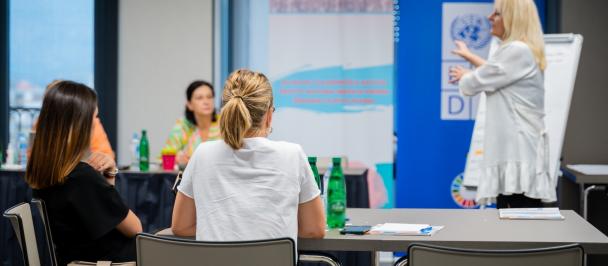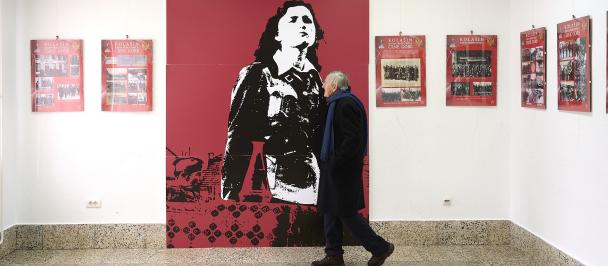#NewGeneration: Youth Creating a Culture of Equality
August 9, 2023
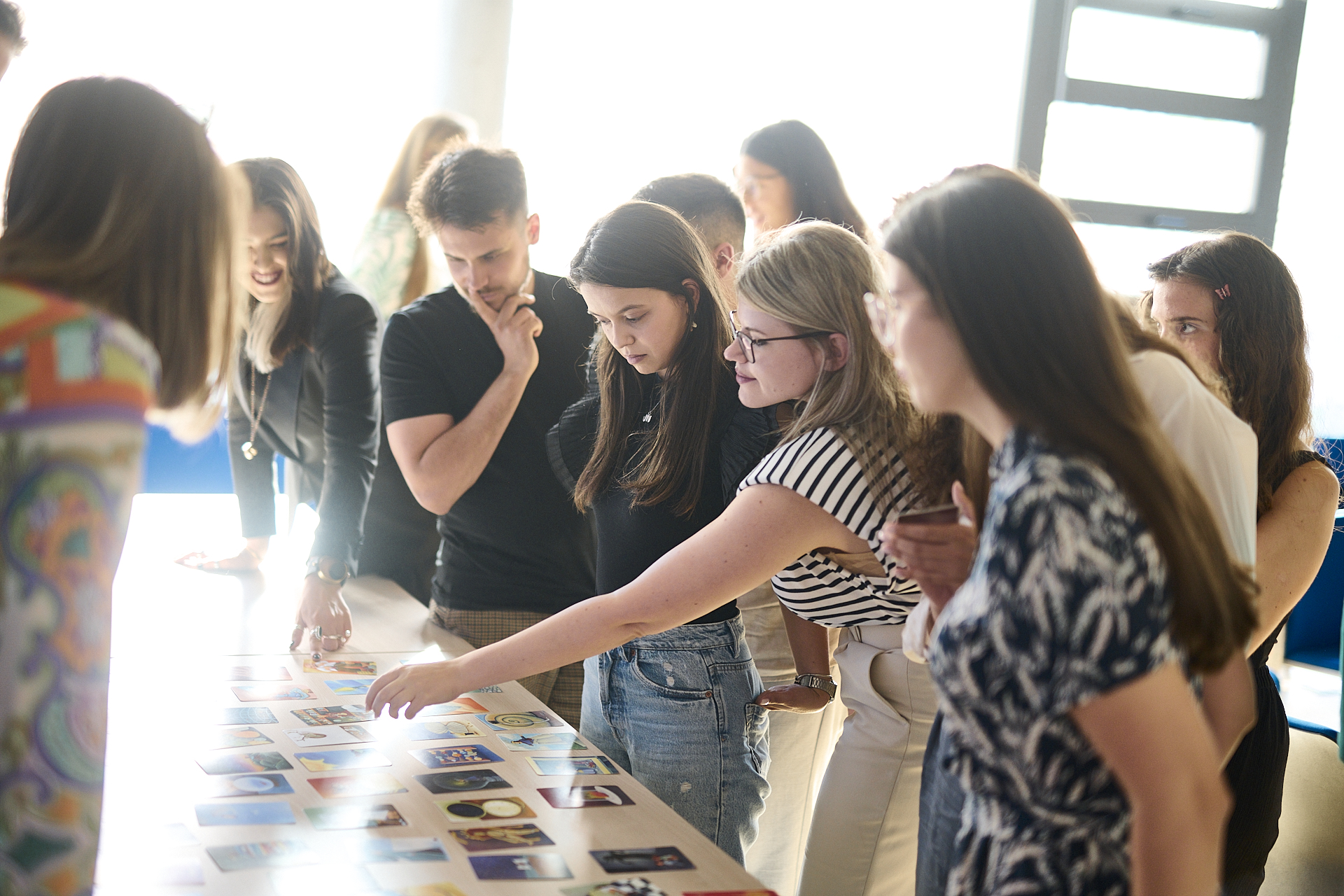
“If the discourse created in a patriarchal environment is full of hatred towards women, gender-based violence, including hate speech, becomes normalised. If the speech addressed to women is hate speech, a system that hates women is created. This is how women are systematically pushed to the margins of society: the decision-makers are therefore mostly men, and the bravest women who stand out suffer hate speech on all platforms, by men and women, of all religions and of all nations. That's why I want to fight it honestly and fearlessly. I’m driven by the fact that the marginalised and discriminated will not have a better position without efforts - it requires daily work on oneself and your environment, guided by the idea that change starts with us."
Sofija Kirsanov, #NextGen
This is how #NextGeneration of young people describe gender discrimination and firmly opposes sexism, misogyny and gender-based hate speech, believing in an equitable, fair and inclusive society, which provides equal opportunities for everyone, regardless of their sex, gender or any other personal feature.
Bearing in mind the increasing incidence and normalisation of hate speech, including gender-based hate speech, UNDP recognizes, connects and empowers a new generation of young people who do not settle for compromises when it comes to gender equality and do not allow questioning of human rights, convinced that they guarantee the dignity and development of every human being. We are wholeheartedly committed to supporting the implementation of the Sustainable Development Goals. This commitment is underscored by Montenegro’s dedication, as articulated in the Declaration of Commitment to be presented at the SDG Summit in New York in September 2023. In alignment with this declaration, Montenegro is resolutely working to empower young people, ensuring their voices are not only heard, but also respected in the decision-making process of implementing the UN Agenda for Sustainable Development by 2030.

Sofija Kirsanov, #NextGen
Hate speech is one of the leading forms of discrimination and violence recognised by young people. However, as many as 42% of them believe that hate speech should be acceptable, under the ambit of freedom of speech. Young people in Montenegro hesitate to get involved in social processes - more than half of them are not interested in deciding on societal issues. Adults and institutions see them as disinterested, while young people perceive what is offered to them as not being tailored to their wishes or needs. Nevertheless, a large number of young people are interested in making their environment better and do not accept the normalisation of violence and hate speech.
Hence, UNDP, through the #NextGeneration (#NextGen) movement attempts to create a space for youth action where, with their beliefs, reflections, questioning of themselves and others, they shatter prejudice, push their own boundaries and create a culture of respectful dialogue. Through this programme, UNDP gathered young people who deal with human rights in different ways and contribute to gender equality through the media, education, civil society, psychology, medicine, entrepreneurship, law. We appreciate and cherish their authentic expressions and contribution to public discourse. We encourage their individual voices because they do not tend to jump to conclusions, but rather reflect, shed light on and question their own prejudices and speak about them, while at the same time calling for responsibility and action. We unite their strengths, resources and enthusiasm into a common vision of equitable and sustainable development tailored to each of us.
“It is increasingly important to me to be truly connected to my values and that what I do, say and the people I connect with are in line with it. One of those values, which I feel deeply about on a personal level, and which permeates all spheres of life, is gender equality”.
Alisa Nikezic, #NextGen
Moving forward, this group of young women and men will design and implement actions that will convey their authentic messages, create a constructive narrative and human rights- based approaches.
On our common path of creating a more equal society, we discuss gender equality, gender-based hate speech, sexism and misogyny. We get acquainted with the history of the women's movement in Montenegro, the current situation regarding the position of women and men, manifestations of sexism in the private and public spheres, but also the influence of media and other content-makers on forming attitudes, perceptions and behaviours.
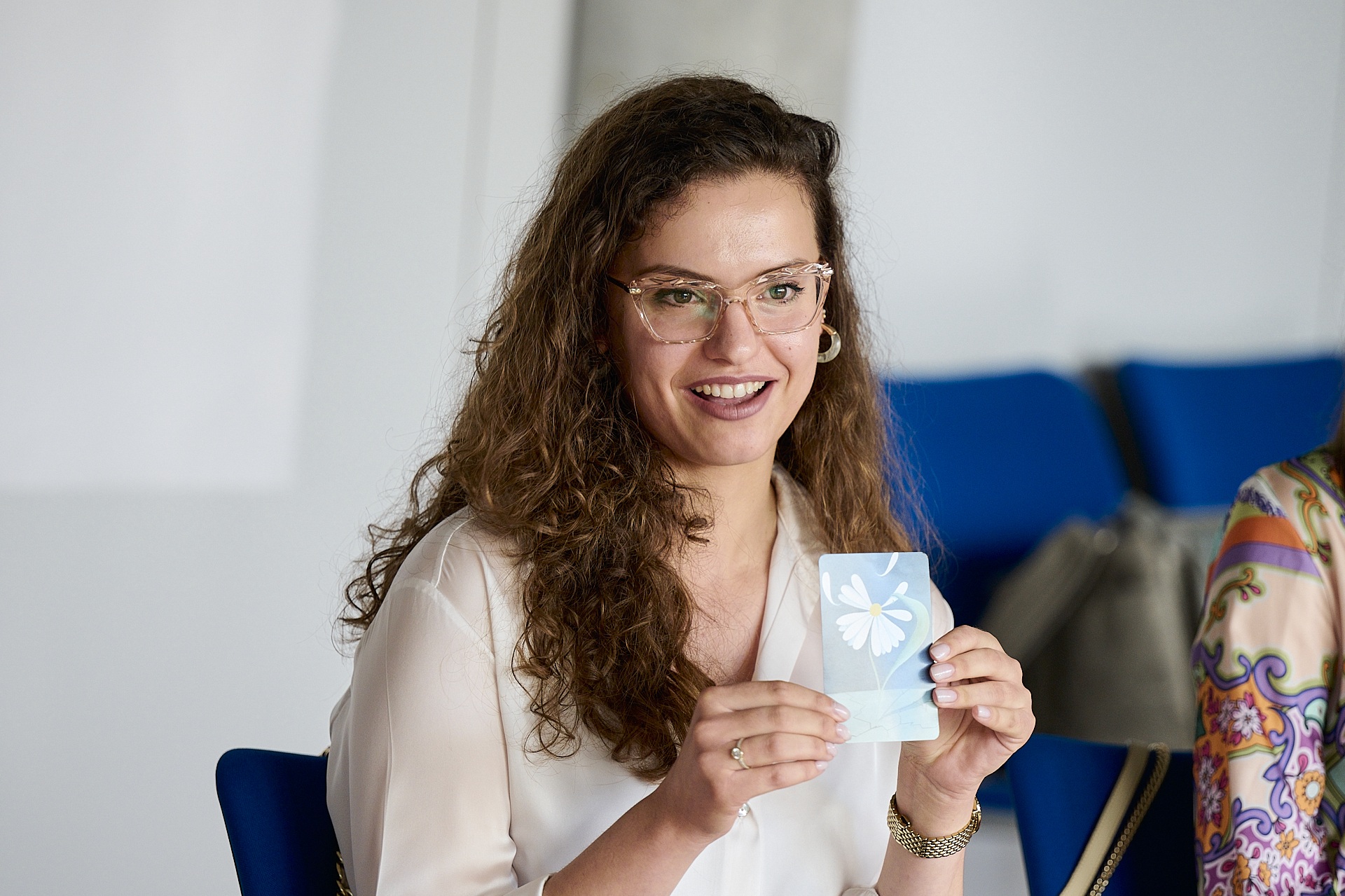
Alisa Nikezić, #NextGen
Discussing the causes of gender-based hate speech, sexism and misogyny, we discover that patriarchy is still present in the 21st century, being equally harmful to both men and women.
Men are expected not to show emotions, be strong, be breadwinners, while women are expected to be quiet and obedient, to follow, to stay in the private space taking care of the family, children and home. Speaking about gender equality, we talk about a society suiting everyone that helps develop everyone’s potential, nurturing mutual respect and support.
In its Declaration of Commitment to the Implementation of the Sustainable Development Goals by 2027/2030, Montenegro pledged to embrace comprehensive measures rooted in the analysis of the fundamental causes and manifestations of hate speech. This undertaking seeks to prevent and effectively address this issue, with a particular focus on combating gender-based hate speech, sexism and misogyny, both in the digital realm and the physical world.
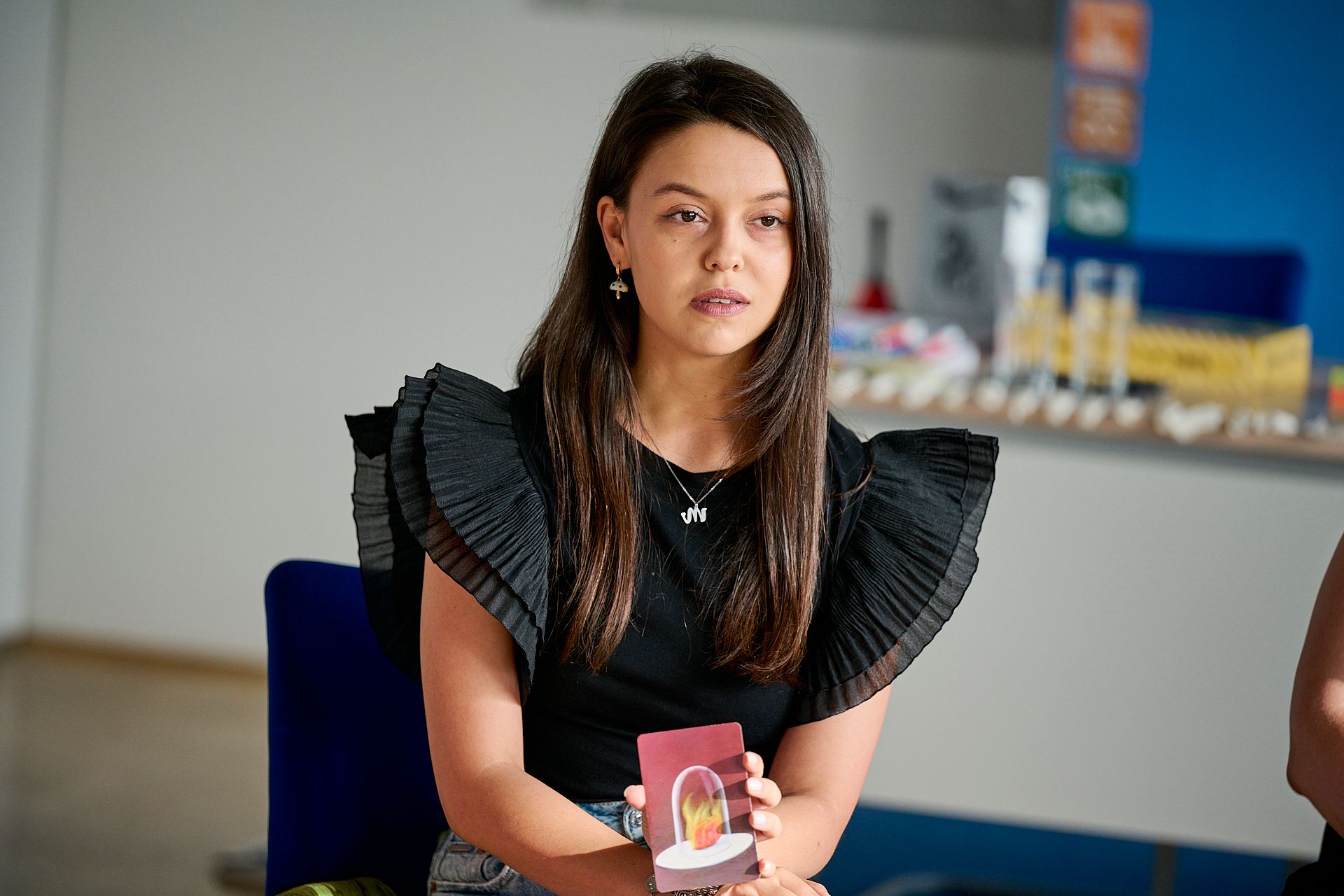
Marija Pešić, #NextGen
#NextGeneration have potential, skills, talents, knowledge and are ready for joint action towards that goal. They believe that the path to a just society starts with individuals, and particularly emphasize that each of us can research, influence the people in our immediate surrounding, identify ways and areas in which we can work and motivate others to do the same, thus starting a chain of positive changes.
#NextGeneration of young people know that gender equality is not a women's issue only; it is equally important for all of us. Hence, #NextGeneration include also young men, who want to contribute to a just society.
“I am particularly interested in deeper psychological drivers of sexism and misogyny, i.e., the effects of behavioural psychology on positive social change. I am determined to help shatter harmful attitudes and promote gender equality, because this is key to a just and inclusive society”, says Danilo Đukanović, while Nardi Ahmetović is driven by pursuit of justice and equality, and he wants to make the world a better place by ending prejudice and stereotypes through education and activism, and believing that all people, regardless of gender, nationality, religion or any other personal feature, should enjoy equal opportunities.
Guided by the belief that the main indicator of success is the creation of new values, proposals and practices that serve the common good rather than individual interests, during the coming months #NextGeneration will jointly design and implement activities enabling dialogue and equality.
Inspired by the determination and vision of these exceptional young people, we support the #NextGeneration in their intention to create a better society of equals that does not hate but supports and respects.
“I want to make an impact with journalistic stories because I believe that every small, quite invisible to others, but sincere act of empathy, understanding and tolerance can do much more in a chain reaction than one grand gesture. Why me - because I don't carry only my weight of gender inequality and the shackles of patriarchy, but of thousands of women more. I don't intend to let them down”.
Marija Pesic, #NextGen
The #NextGeneration is carried out under the "Enabling dialogue and collaborative action for countering hate speech" project with the aim of preventing and addressing gender-based hate speech, sexism and misogyny and striving for sustainable peace, dialogue and tolerance. The project is financed within the UNDP Funding Window for Governance, Peacebuilding, Crisis and Resilience, with the financial contributions of Luxembourg and Sweden.

 Locations
Locations












